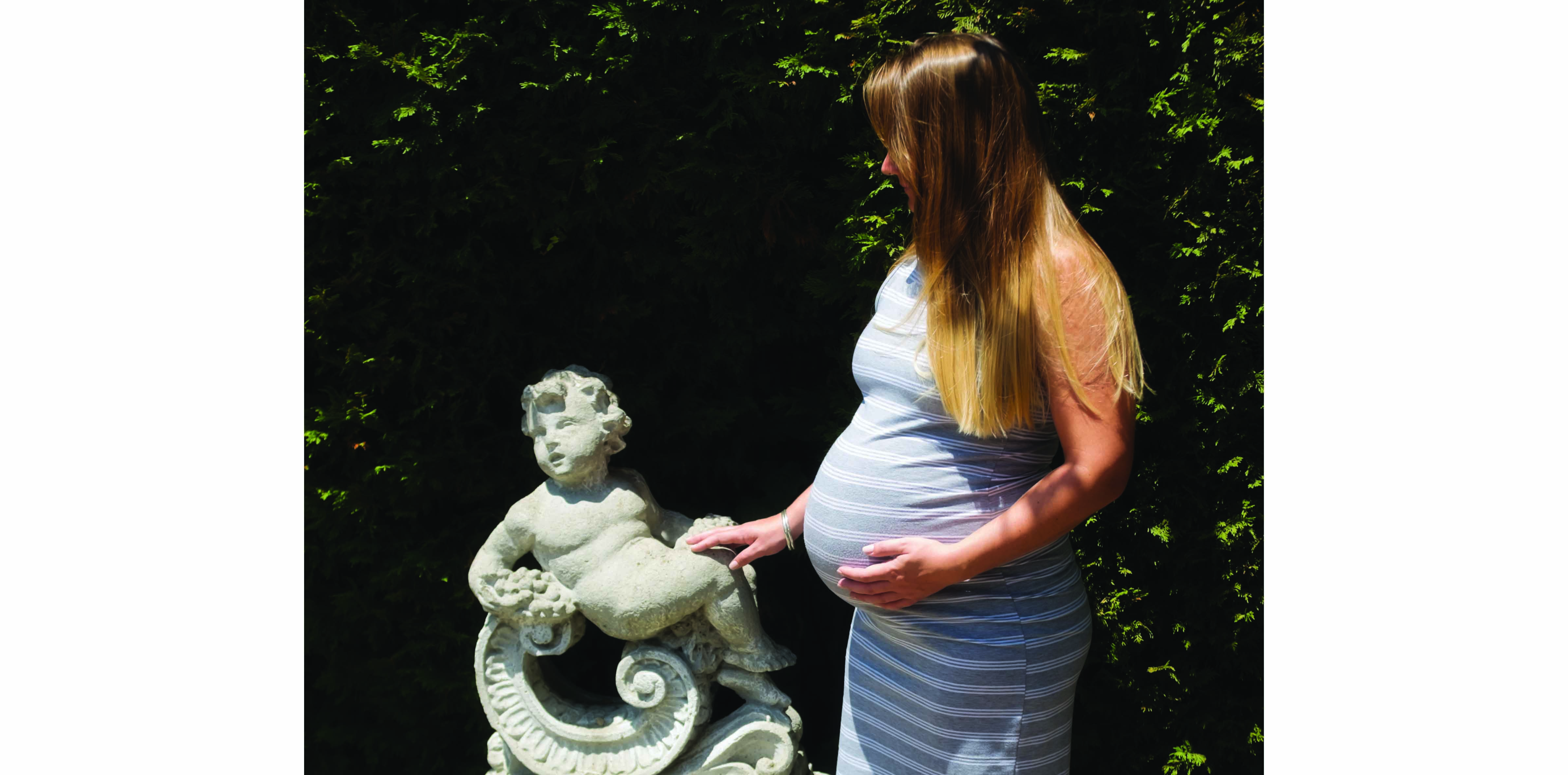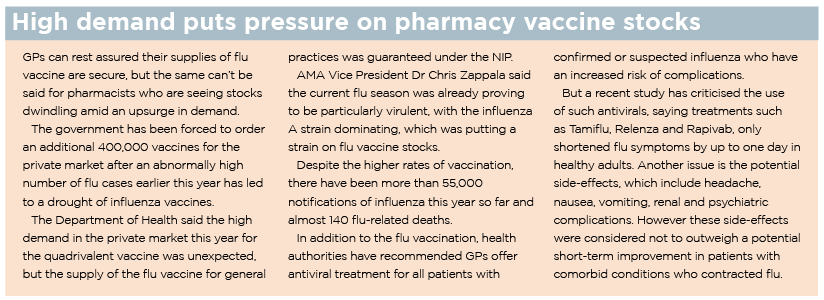Having the vaccine at the beginning of the flu season is still the best idea for pregnant women
Babies born to mothers who have the flu vaccine later in pregnancy are more likely to acquire immunity to the virus, researchers say.
An Australian review, published in Influenza and other Respiratory Viruses, found women who were vaccinated against influenza in their third trimester had a significantly higher seroconversion rate for the H3N2 strain of influenza A (73%) at the point of delivery compared with women who were vaccinated in their second trimester (30%).
The analysis took into account 16 studies that followed women who were vaccinated against the flu at various stages of pregnancy. Antibodies were measured through haemagglutination inhibition (HI) titres within one month of vaccination, at the time of delivery in the mother and in cord or newborn blood.
“Vaccinating a woman in early pregnancy will provide protection against influenza for a greater proportion of pregnancy but may increase the probability that this immunity will not last until delivery,” the researchers said.
In addition, lower antibody levels at delivery in the mother were associated with the risk that the mother could become a viral source to the baby.
“Given that women immunised earlier in pregnancy show evidence of immune waning by the point of delivery, our findings support current recommendations for women immunised early in their pregnancy to receive a second dose if they are still pregnant in the following influenza season,” the researchers said.
Dr Jane Frawley (PhD) a research fellow at the national health and research council said while it was an advantage for women to have higher levels of antibodies at the end of their pregnancy to protect their baby, the most important thing to stress was the need for women themselves to be protected during the pregnancy.
“This means having the vaccine at the beginning of the influenza season – this is the best way to protect the women and her unborn baby from the flu,” she said.
Pregnant women are at a higher risk of complications from the flu and the hospitalisation rate for these women increases as the pregnancy advances.
In addition, women who waited until the last 15 days of pregnancy for a flu vaccine were found to have no significant immunity at the time of delivery. “The best time [for the flu vaccine] is the time that will provide the most protection during pregnancy,” Dr Frawley said.
Previous studies investigating the optimal time to administer the antenatal pertussis vaccine showed similar results, with some countries bringing forward their recommended time for immunisation to ensure women were better protected against whooping cough during pregnancy.
IRV 2019, 5 June



